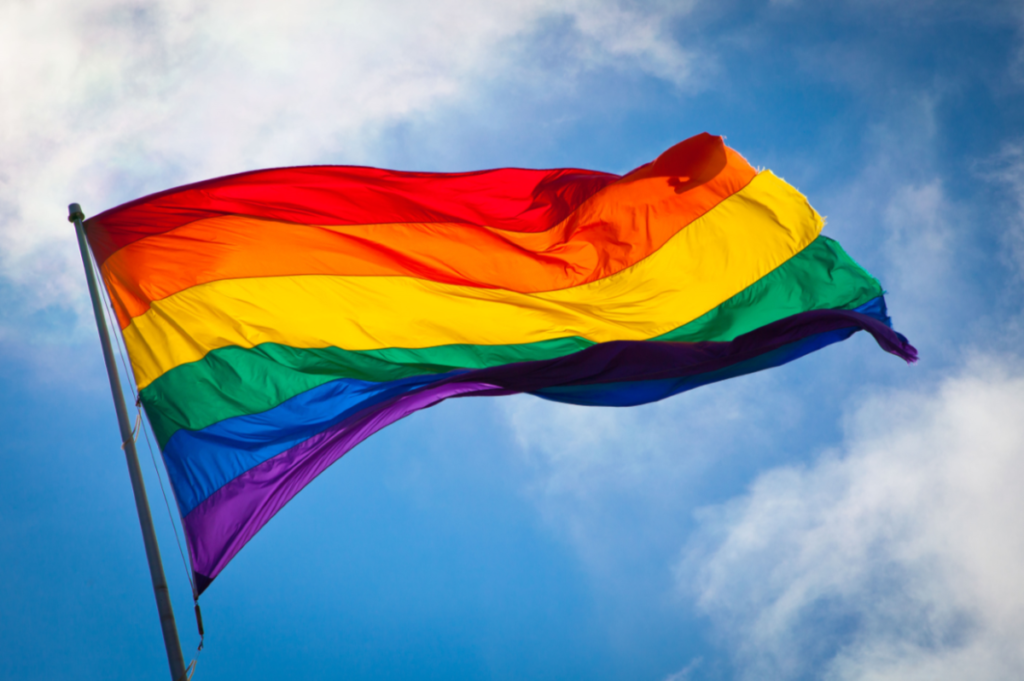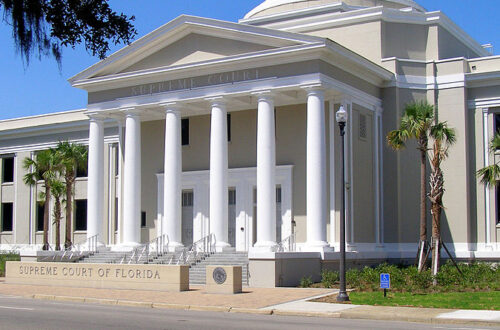In a month normally characterized by lively, rainbow-colored festivities, Florida’s Pride Month has garnered national attention for a different reason: the DeSantis administration’s plethora of recent actions that have been widely criticized for being anti-LGBTQ+.
Within the first 11 days of Pride Month, Gov. Ron DeSantis passed a bill that banned transgender youth from playing in public school sports, vetoed funding for LGBTQ+ mental health and housing services, and was indirectly involved in a Jacksonville controversy regarding the removing of rainbow lights from the Acosta Bridge.
On June 1, DeSantis signed SB 1028 — also known as the Fairness in Women’s Sports Act — that bans public secondary and post-secondary transgender female students from participating on sports teams that are not consistent with the sex assigned to them at birth.
The bill was designed to protect fair athletic opportunities for cisgender girls, but for college atheletes like Elizabeth Kaplan, the bill symbolizes a way to discriminate against transgender girls.
“I don’t think that the effect of allowing trans women to play on the field will impact the game at all,” said Kaplan, a Boca Raton native and sophomore lacrosse player at Columbia University. “Trans women playing on the same field as me will not be a problem. It would be the same as if I played against someone who is 6’2. It’s just a genetic advantage, and I have to work around it.”
The Human Rights Campaign announced its intent to sue DeSantis over the legality of the Fairness in Women’s Sports Act, citing it as an attack on transgender youth. In a recent interview, HRC President Alphonso David expressed his confidence that the bill would be overturned if it reached the United States Supreme Court.
A day later, DeSantis vetoed $900,000 in funding toward Central Florida LGBTQ+ support programs. This included $150,000 to fund mental health services for the Pulse nightclub shooting survivors and their families, and $750,000 to provide housing for homeless LGBTQ+ in the Orlando area.
On June 12, the people of Orlando gathered in remembrance of the fifth anniversary of the Pulse nightclub mass shooting that claimed 49 lives — making it the deadliest attack on the LGBTQ+ community in United States history.
Among those commemorating the Pulse victims was Rep. Anna Eskamani, D-Orlando, who played a vital role in securing bipartisan support for the Central Florida LGBTQ+ funding passed in both houses until DeSantis’s ultimate veto.
“The governor has set himself on a homophobic and transphobic agenda,” Eskamani told the Florida Political Review. “It’s really shameful that the governor is more focused on running for president in 2024 and trying to appeal to this broader, conservative base than actually supporting Floridians right now.”
Another program affected by DeSantis’s veto — the Zebra Coalition — was going to use the $750,000 to renovate an abandoned hotel to guarantee housing for homeless LGBTQ+ youth.
“That money was going to end up being about half of our total cost for the renovation,” Heather Wilkie, the executive director of the Zebra Coalition, told the Florida Political Review.
In the most recent wave of backlash, DeSantis faced heavy criticism after the Florida Department of Transportation reportedly ordered the Jacksonville Traffic Authority to shine all-blue lights on the Acosta Bridge — rather than the previously planned rainbow lights to celebrate Pride Month.
The Jacksonville Transportation had allegedly been told by the Florida Department of Transportation that the lights were out of compliance with what was in their permit, but the FDOT rejected that claim. According to Beth Frady, spokeswoman of the FDOT, the decision to turn off the lights came from the JTA and not from the governor’s office.
The colorful display of lights had originally been scheduled for June 8 through June 13, and following the adverse reactions of Floridians, the rainbow lights were turned back on.
Following the anti-LGBTQ+ political actions undertaken by the DeSantis administration, advocates for the LGBTQ+ community like Wilkie believe it is clear where DeSantis stands this Pride Month.
“It sends a direct message to our kids: you’re not supporting me… and young LGBTQ people feel a certain way about themselves as a result,” said Wilkie.
Check out other recent article from Florida Political Review here.
Featured Image: Pride flag. Unmodified photo by Benson Kua used under a Creative Commons license. (https://bit.ly/3pWi0gx)





